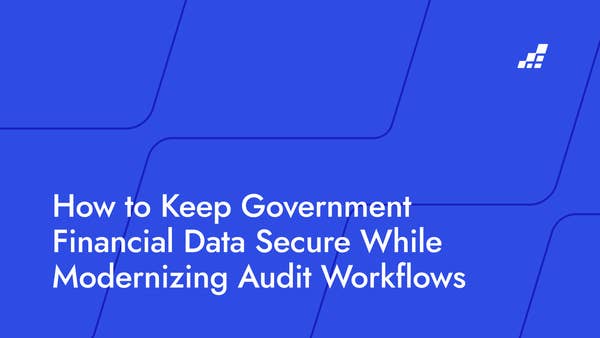- /
- Blog
What You Need to Know About the 2024 GAO Yellow Book Updates

Understanding these updates is essential for auditors aiming to conduct effective, trustworthy audits that maintain public confidence.
What is the GAO Yellow Book and Why Does it Matter?
The Yellow Book outlines standards and principles auditors must follow to ensure consistency, professionalism, and accountability. Established initially in 1972, it’s regularly updated to stay relevant. The standards help auditors remain independent, communicate findings clearly, and maintain ethical behavior.
Understanding the GAO Yellow Book
First introduced in 1972, the Yellow Book outlines the standards and principles auditors must follow to ensure consistency, professionalism, and accountability in auditing public sector entities. Regular updates ensure its relevance and effectiveness. The standards help auditors remain independent, communicate findings clearly, and maintain ethical behavior, ensuring auditors uphold a high level of professionalism and integrity.
Purpose and Importance of the Yellow Book
The primary purpose of the Yellow Book is to provide a consistent and effective audit framework, ensuring reliability in audit reports and promoting trust among stakeholders. It underscores ethical behavior, independence, and objectivity in auditing. Additionally, the Yellow Book emphasizes continuous professional education, ensuring auditors remain adept at handling evolving challenges and complexities in public sector auditing. Furthermore, it mandates clear and concise reporting of audit findings to foster transparency and accountability.
Key Updates in the GAO Yellow Book 2024 Edition
Enhanced Focus on Risk Assessment
The 2024 Yellow Book emphasizes more robust risk assessments. Auditors must proactively identify risks, evaluating both inherent risks (built-in risks within processes) and control risks (risks related to internal controls). The intent is to ensure audits more directly address the specific risks facing each entity, leading to clearer insights and more valuable recommendations.
Increased Use of Technology
The latest update acknowledges that technology now plays a vital role in auditing. Auditors are encouraged to integrate advanced tools such as data analytics, AI, and blockchain to enhance the depth, accuracy, and efficiency of their audits. For instance, analytics can quickly pinpoint anomalies, and blockchain offers transparent and secure transaction trails.
Stronger Ethical Guidelines
Ethics and independence receive greater emphasis. Auditors must demonstrate complete objectivity, avoiding conflicts of interest. Clearer guidance on maintaining independence ensures auditors’ credibility and reinforces the trust stakeholders place in audit reports.
Supporting Auditors with the Right Tooling
By leveraging Excel-native automation, auditors can seamlessly integrate advanced analytics directly within their familiar workflows. This reduces manual data handling and improves audit quality, enabling auditors to focus on deeper, more insightful analysis. The capability to automatically cross-reference audit evidence within Excel not only enhances transparency but also boosts audit reliability—directly aligning with the updated Yellow Book standards.
Additionally, DataSnipper supports auditors in maintaining clear and concise documentation trails, essential for ethical transparency and stakeholder communication.
Practical Implications for Auditors
Training and Development
Auditors must pursue ongoing training in risk assessment, technology integration, and ethical standards. Organizations should provide specialized training, mentorship programs, and industry-led workshops to ensure auditors remain proficient.
Adapting Audit Methodologies
Audit methodologies must evolve to incorporate updated guidelines, including advanced data analysis tools, improved documentation practices, and refined procedures. Adopting agile methodologies helps auditors effectively respond to emerging risks and leverage AI and analytics for better decision-making.
Strengthening Communication with Stakeholders
Clear, transparent communication is vital. Auditors should proactively inform stakeholders about audit processes, findings, and recommendations through regular updates and accessible formats, enhancing stakeholder trust and engagement.
Challenges and Considerations
Auditors must navigate challenges such as resource constraints, balancing compliance with innovation, and managing ethical dilemmas. Organizations should seek creative solutions, foster innovation, and establish clear policies and regular training to manage these issues effectively.
Future Trends in Auditing
Emerging trends include increased use of data analytics, greater focus on sustainability and social responsibility, and adapting to an evolving regulatory environment. Auditors must continuously update their skills and stay informed of regulatory changes.
Conclusion
The GAO Yellow Book 2024 update represents a significant advancement in public sector auditing standards. By proactively adapting to these changes, leveraging effective tools like DataSnipper, and committing to continuous learning and ethical standards, auditors will effectively meet the demands of the evolving public accountability landscape.
